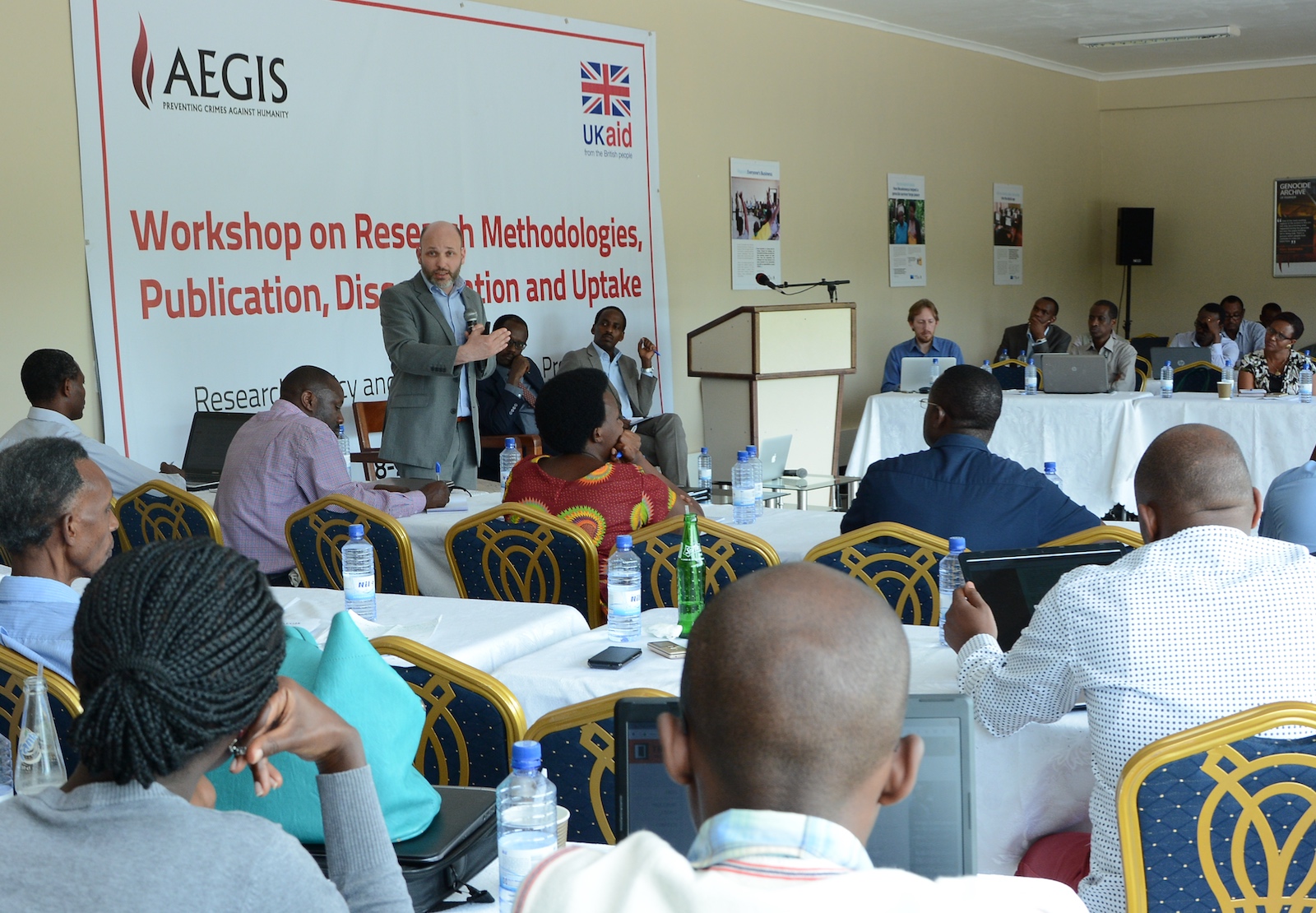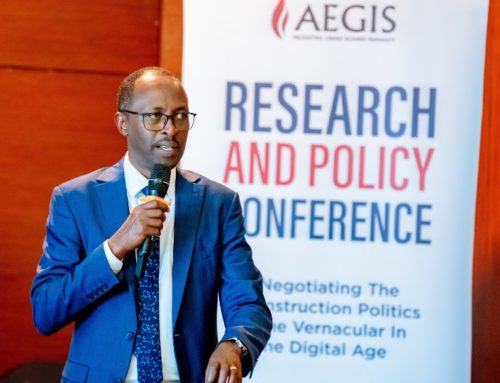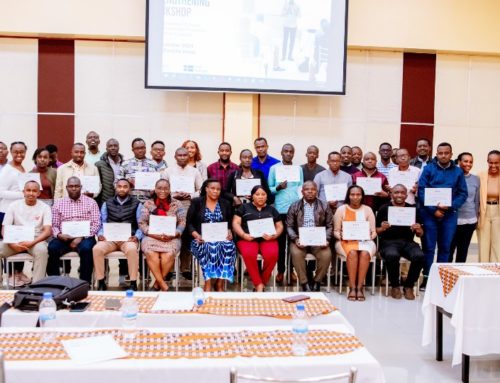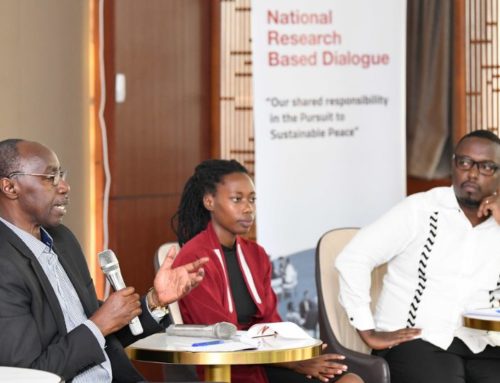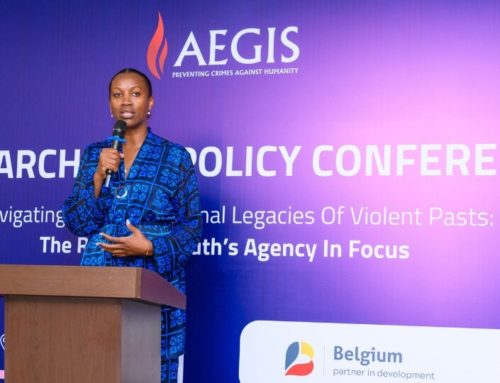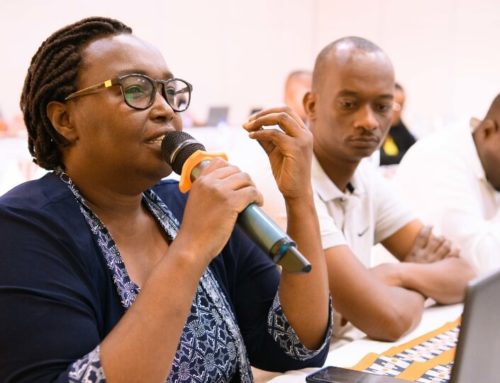The Aegis Trust capacity-building workshop for Rwandan researchers has come to a close with participants committing to engage more critically with one another’s work.
The workshop, which is part of Aegis’ Research, Policy and Higher Education programme, discussed the best approaches for conducting quality research as well as how to make their findings accessible to academic and non-academic users.
Presenters from Rwanda and around the world gave insights on research publication, dissemination and uptake, emphasising how to turn research findings into usable information disseminating it through appropriate channels such as media and academic journals, and developing specific and tailored formats for targeted users.
The final day of the workshop featured interactive sessions where participants discussed publication standards and how to improve academic work to meet the criteria of publishers. Dr James Smith, CEO of the Aegis Trust, shared insights into the work of Rwanda’s research community and its importance to peace building practitioners.
“It’s important for Aegis to engage with the research you’re doing because it helps us to be more effective. All practitioners must continually go back to the literature to see what others have done and build on the concepts and lessons from research already undertaken in Rwanda and abroad,” Dr Smith said.
Participants thanked the Aegis Trust for supporting them to gather and share academic insights about research in social sciences.
“The workshop was interesting. On the first day, I learnt a lot about methodologies from the peer-to-peer discussions. On the second day, I gained knowledge about dissemination of research findings to end users. Both aspects were helpful to me as a researcher and I know it will also benefit Rwanda’s policy makers,” said Venantie Nyiransabimana, a researcher and lecturer.
“Over the last two days, I have improved my skills because of the new practical aspects of research I learnt about. I am ready to continue my research work with better tools to collect useful findings. The Aegis workshop will help Rwandans to document rich content that educates the next generation,” said Albert Hategekimana, a researcher.
“I enjoyed the presenters’ practical tips about how to approach policy makers for research dissemination. I gained knowledge about how to be more professional while in the field with a concrete focus on the ethical considerations that are necessary to have. Through the workshop, Aegis is also helping to create a connection between senior and junior researchers,” said Marie Grace, an aspiring research specialist.
“The workshop was great. We were taught about new ideas and perspectives on research. I am currently working on my dissertation titled ‘Peace Education and Social Economic Development in Rwanda’. The presentation on the use of theory has enriched my research process. Without a doubt, I will make changes in my exploratory work to ensure more professional and robust findings,” said Eugenie Urujeni, a student and staff member at the Kigali Genocide Memorial.
About the Aegis Trust Research, Policy and Higher Education programme
Established in 2014, the Aegis Trust Research, Policy and Higher Education programme is supported by the UK Government’s Department for International Development under the Genocide, Research and Reconciliation Programme. The goal of the programme is to contribute to informing policy and practice on peacebuilding and genocide prevention in Rwanda with evidence and to support the Rwandan research community as they provide and communicate this evidence. The programme works in partnership with Rwandan researchers, policymakers and practitioners.

